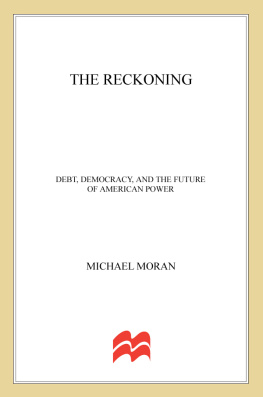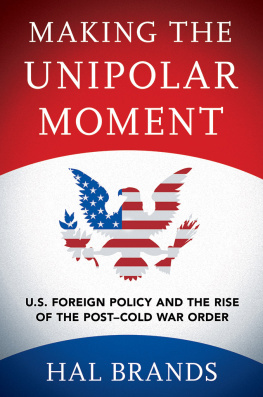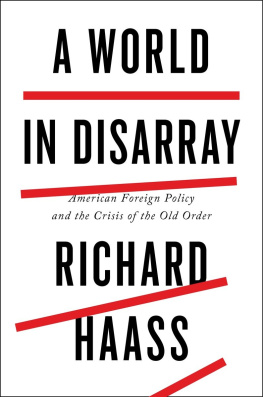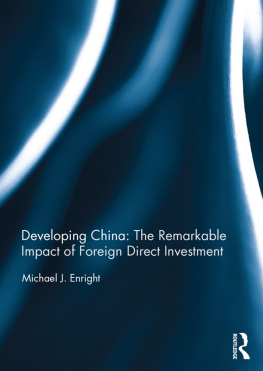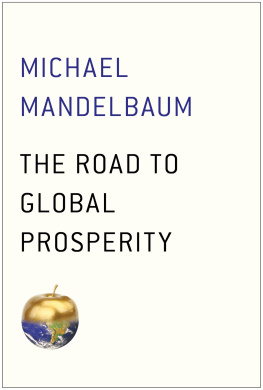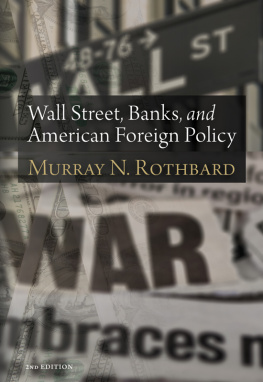The author and publisher have provided this e-book to you for your personal use only. You may not make this e-book publicly available in any way. Copyright infringement is against the law. If you believe the copy of this e-book you are reading infringes on the authors copyright, please notify the publisher at: us.macmillanusa.com/piracy.
THE RECKONING
THE RECKONING
DEBT, DEMOCRACY, AND THE FUTURE OF AMERICAN POWER
MICHAEL MORAN
Foreword by Dr. Nouriel Roubini

THE RECKONING
Copyright Michael Moran, 2012.
All rights reserved.
For information, address St. Martins Press, 175 Fifth Avenue, New York, N.Y. 10010.
First published in 2012
by PALGRAVE MACMILLAN
in the United Statesa division of St. Martins Press LLC,
175 Fifth Avenue, New York, NY 10010.
ISBN 9780230339934
Our eBooks may be purchased in bulk for promotional, educational, or business use. Please contact the Macmillan Corporate and Premium Sales Department at 1-800-221-7945, ext. 5442, or by e-mail at .
Library of Congress Cataloging-in-Publication Data
Moran, Michael, 1962
The reckoning : debt, democracy, and the future of American power / Michael Moran ; [foreword by] Nouriel Roubini.
p. cm.
Includes index.
ISBN 9780230339934
1. United StatesEconomic policy2009 2. United States Economic conditions2009 3. United StatesForeign economic relations. I. Title.
HC106.84.M67 2012
330.973dc23 2011044895
A catalogue record of the book is available from the British Library.
Design by Newgen Imaging Systems, Ltd., Chennai, India
First edition: April 2012
10 9 8 7 6 5 4 3 2 1
Printed in the United States of America.
For Caitlin, Griffin and Hannah Marie
CONTENTS
FOREWORD
Dr. Nouriel Roubini
In the autumn of 2011, global markets endured yet another phase of a European sovereign debt crisis. It started in tiny Greece and was allowed to spread, like a communicable disease, up the food chain of euro zone economies until the threat landed at the door of Italy and France, the eighth and sixth largest economies in the world, respectively. As in European crises of times past, when local leadership failed and the crisis threatened to spread beyond Europes borders, the call went out for someone, anyone, to save the day. Yet, contrary to the crises of the past century, beginning with World War I, the target of these urgent appeals was not the United States. Instead, emissaries from Italy, Greece, Ireland, and other distressed euro zone countries reached out to China, even if the willingness of China to bail out distressed euro zone members was more wishful thinking than reality.
Not long ago, the idea of a Group of Seven (G7) stalwart like Italy turning to the chief proponent of authoritarian state capitalism for economic help would have set off alarm bells in the United States. America would have intervened to engineer a rescue, as it did in Mexico in 1994, South Korea in 1998, Brazil in 1999, and in many other countries with emerging market crises, and as it had in both of the twentieth centurys great global conflicts. But the past three years have delivered a stark reality check to the superpower. Offering financial help to even its closest allies these days would be an exercise in keeping up appearances. Americaand Japan, Britain, France, and, yes, even Germanyhas its own problems.
As Michael Moran argues in the forthcoming chapters of this book, The Reckoning: Debt, Democracy, and the Future of American Power, the world that emerged out of the cauldron of the American Century is in crisis. Much has been written about the relative decline of US economic and political influence, of the rise of the BRICSBrazil, Russia, India, China, South Africa, and other emerging powersand of the policy mistakes and demographic and debt problems that beset the old West and its Asian protg, Japan. But few have considered the practical consequences for the United States and its allies as the economic and political status quo that American power has sustained in various regions all over the planet begin to show strain and fray and even break apart.
Just as the uncontrolled bankruptcy of Lehman Brothers nearly caused the global financial system to collapse in 2008, and just as the threat of the default of a relatively small sovereign player like Greeceor other euro zone sovereignscould destroy the European common currency, an uncontrolled unraveling of US power would be a disaster of global proportions. As Moran writes, as with Britains long retreat from global dominance in the early twentieth century, the pullback of American power in our time will expose, for the first time in decades, parts of the geopolitical shoreline that American might, political will, and diplomatic influence have heretofore sheltered.
THE CRISIS OF THE DEVELOPED WORLD
Perhaps we should not be surprised that Italys desperate plea failed to set off alarm bells. After all, its appeal to China for massive purchases of Italian government debt followed the effective near insolvencies of three European statesGreece, Ireland, and Portugalmet feebly by European Union politicians with half measures, parochialism, and denial. Meanwhile, 2011 also witnessed the battering of Japans economy by a combination of natural, man-made, and policy-induced disastersa combination that has Japan well into a third consecutive lost decade of debt and near depression. And, of course, there was the spectacle of a near default by the United States and the downgrade of its long-term credit rating by Standard & Poors (S&P).
How could this happen? As Moran persuasively argues, a good part of the problem is that, in Italy as in America and other advanced economies, the economic conversation today is driven by politicians and investment professionalsfund managers, traders, stock pickers. The former are crippled by a lack of knowledge, partisan self-interest, and short-term electoral cycles; the latter are internally wired to maximize short-term profits even at the expense of long-term economic stability and to take positionsexacerbated by high-frequency tradingthat fuel the volatility that underpins their returns. And all of this is amplified by the echo chamber of the financial media and blogosphere where the 24/7 news cycle of instant information is amplified by instant and often noisy commentary.
But today, more than three years after the collapse of Lehman Brothers shed light on the rot and misconceptions that underpinned capitalism in the early years of the twenty-first century, the world finds that it cannot pull back from the brink. Indeed, like a ship chugging with all its power against the pull of a mighty waterfall, the global economy is being starved of fuel by governments applying excessively front-loaded fiscal austerity, insisting on treating aggressively the long-term problemtoo much private and public debt requiring deleveragingeven as the short-term weakness and crisis threaten to throw us all into the abyss.
A swift (if thankless) reaction by central banks and economic policy makers in the wake of Lehman Brothers collapse in 2008 prevented a second great depression. This time, however, if wrong-headed policy measures push the world back into recession, it will be far more difficult to prevent the slide from ending in a full-blown depression and a financial crisis as bad as, if not worse than, the one in 20082009. The developed world is too indebted to save the day; the United States, economically and politically, has simply run out of policy bullets. Meanwhile, the emerging world lacks the institutional sophistication, political leadership, or the raw economic power required to pull the global economy away from the brink.
Next page
